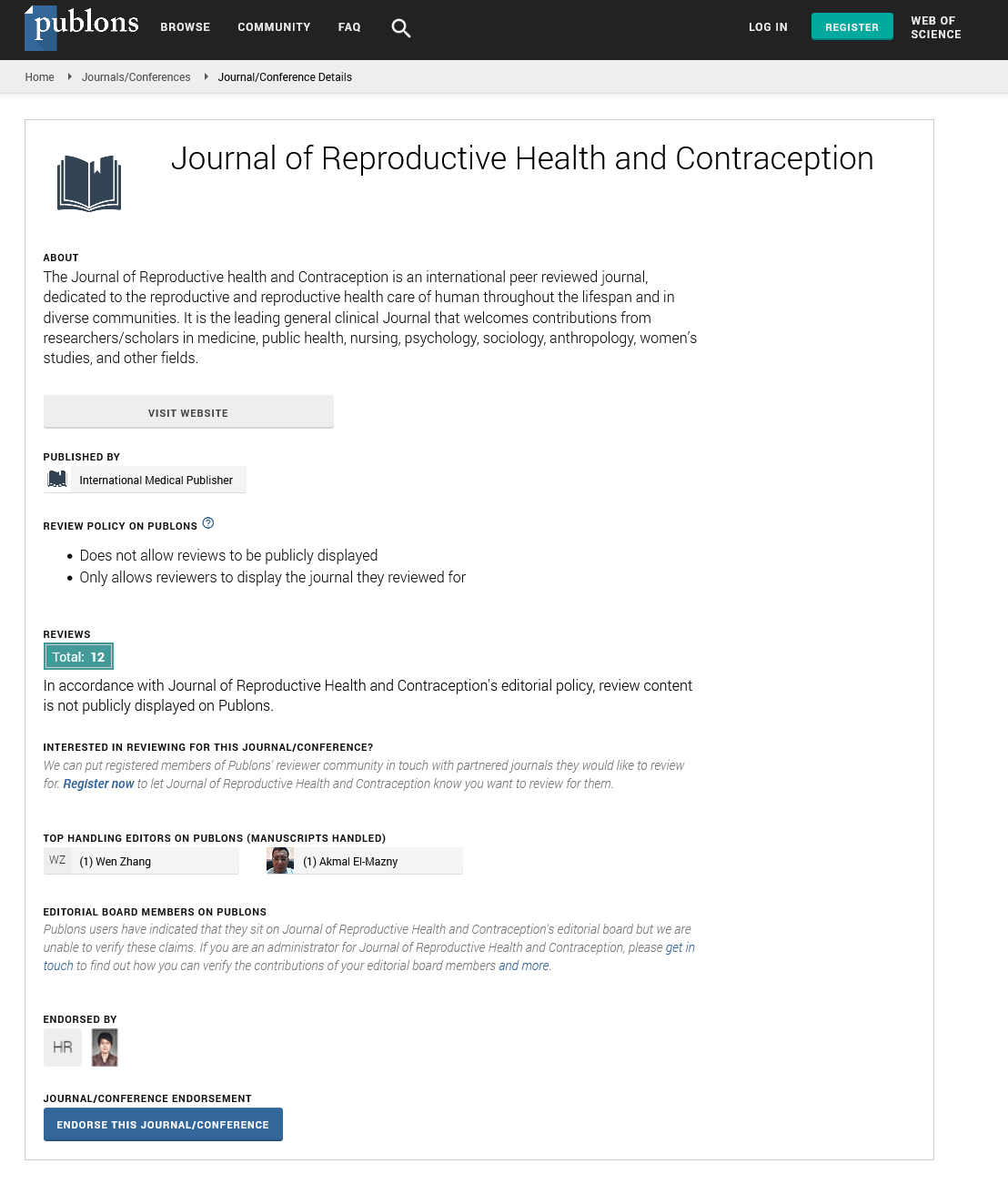ISSN : 2471-9749
Journal of Reproductive Health and Contraception
Diode laser hysteroscopic metroplasty for dysmorphic uterus: a pilot study
International Congress on Midwifery and Maternal health - October Webinar
October 11, 2021 | Webinar
Asaf Bilgory
Hillel Yaffe Medical Center, Israel
ScientificTracks Abstracts: J Contracept Stud
Abstract
Study Objective: To study the efficacy and safety of diode laser hysteroscopic metroplasty for dysmorphic uterus and the impact on reproductive outcomes. Design: A retrospective, single center pilot study with prospective follow-up. Setting: A university-affiliated, tertiary hospital. Patients: From February 2018 to February 2020 all nulliparous women with a three-dimensional ultrasound diagnosis of T- or Y-shaped dysmorphic uterus and diagnosis of infertility, recurrent implantation failure, or recurrent pregnancy losses were referred for hysteroscopic metroplasty. Intervention: Diode laser hysteroscopic metroplasty performed under general anesthesia in an ambulatory setting. Main outcome measures: Operative time, complications, hysteroscopic appearance of the cavity in a follow-up hysteroscopy, and reproductive outcomes in terms of pregnancy and live birth. Results: A total of 25 infertile women with mean duration of infertility of 56.6 ± 36.1 months underwent hysteroscopic metroplasty. No complications were reported, and subsequent 3-dimensional ultrasound and follow-up hysteroscopic appearance were satisfactory in all cases. Maximum follow-up was 32 months (mean ± standard deviation 11.5 ± 9.2 months). Fifteen nulliparous women returned for fertility treatments in our institute, among whom nine conceived (60% pregnancy rate). The rate of deliveries and ongoing pregnancies (pregnancies beyond 24 weeks of gestation) was 78% (7/9), with six successful liveborn deliveries at 36-38 weeks and one ongoing pregnancy. One had spontaneous abortion at week 19 and one had a spontaneous abortion at week 7. Conclusion: Hysteroscopic metroplasty in an ambulatory setting, using diode laser is a safe, effective procedure, improving reproductive outcomes in cases of T- or Y-shaped uterus.
Biography
Asaf Bilgory obtained his medical degree from Semmelweis University, Hungary in in 2011. He completed residency training in Obstetrics and Gynecology in 2019 and is currently a fellow in Reproductive Endocrinology and Infertility at the IVF unit of Hillel Yaffe Medical Center which is affiliated with the Ruth and Bruce Rappaport School of Medicine, Technion, Haifa, Israel. Interests include implantation, optimization of luteal support and reproductive surgery. In our institute we evaluate the uterus very carefully at the time of administration to the IVF unit and later in cases of repeated implantation failure. A tight cooperation between the fertility unit and the gynecology ambulatory surgery unit led to a uniqe collaboration which will be presented in the congress.
Google Scholar citation report
Citations : 201
Journal of Reproductive Health and Contraception received 201 citations as per Google Scholar report
Journal of Reproductive Health and Contraception peer review process verified at publons
Abstracted/Indexed in
- Google Scholar
- China National Knowledge Infrastructure (CNKI)
- WorldCat
- Publons
Open Access Journals
- Aquaculture & Veterinary Science
- Chemistry & Chemical Sciences
- Clinical Sciences
- Engineering
- General Science
- Genetics & Molecular Biology
- Health Care & Nursing
- Immunology & Microbiology
- Materials Science
- Mathematics & Physics
- Medical Sciences
- Neurology & Psychiatry
- Oncology & Cancer Science
- Pharmaceutical Sciences
